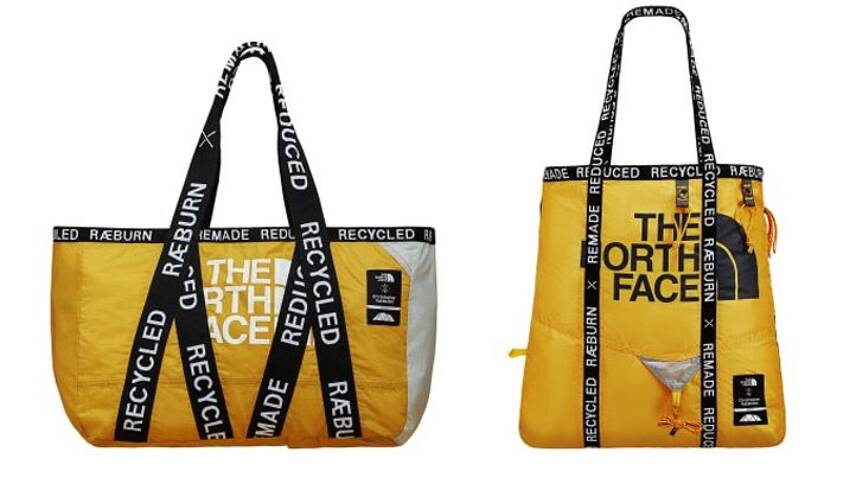Register for free and continue reading
Join our growing army of changemakers and get unlimited access to our premium content

Each product will vary in aesthetics as different The North Face tents have been recycled and reused across the entire collection
The collaboration has seen tents provided by The North Face, owned by the VF Corporation, to be turned into a range of bags by designers RÆBURN. The bags are available online or at The North Face’s Urban Exploration store on Carnaby Street.
“The North Face has been inspiring a global movement of exploration and conservation for over fifty years, and we couldn’t be prouder to be collaborating on this special project, applying our RÆMADE ethos to transform surplus tents into unique bags,” Christopher Raeburn said.
“At RÆBURN we’re motivated to work with brands, other designers and individuals to drive positive change in our industry and it’s been fantastic to work alongside the talented team at The North Face to bring this project to fruition.”
Each product will vary in aesthetics as different The North Face tents have been recycled and reused across the entire collection. As a result, bag colour will vary with each purchase.
We’ve teamed up with @TheNorthFaceEU on a collection of bags RÆMADE from old The North Face® tents ⛺️ https://t.co/XMwCHuVXDC pic.twitter.com/gyk8EJly9l
— RÆBURN (@Raeburn_Design) March 26, 2019
RÆBURN specialises in fashion designs that promote circularity, having previously collaborated on designs with Timberland, also owned by VF Corporation and surfing brand Finisterre. The designers also worked on a recyclable water can with Cano Water for The Zoological Society of London (ZSL), to replace their plastic water bottles.
Fresh faced
As for The North Face, the refashioned tents are the latest project in a long line of closed-loop initiatives. Last summer, the brand launched its “Renewed” programme, which acts as an online hub for the brand to sell refurbished products that are sourced from returned, damaged or defective apparel.
The North Face has also expanded its line of carbon “net-negative” products to include scarves and jackets, after successfully designing a “Climate Beneficial” wool beanie in 2017.
The company’s Climate Positive line of apparel is made in the US with the help of industry organisations Fibershed and Bare Ranch. Regenerative agricultural practices used at the ranching stage of production capture more carbon in the soil than is emitted into the atmosphere, while increasing soil fertility and improving water-holding capacity.
Matt Mace


Please login or Register to leave a comment.